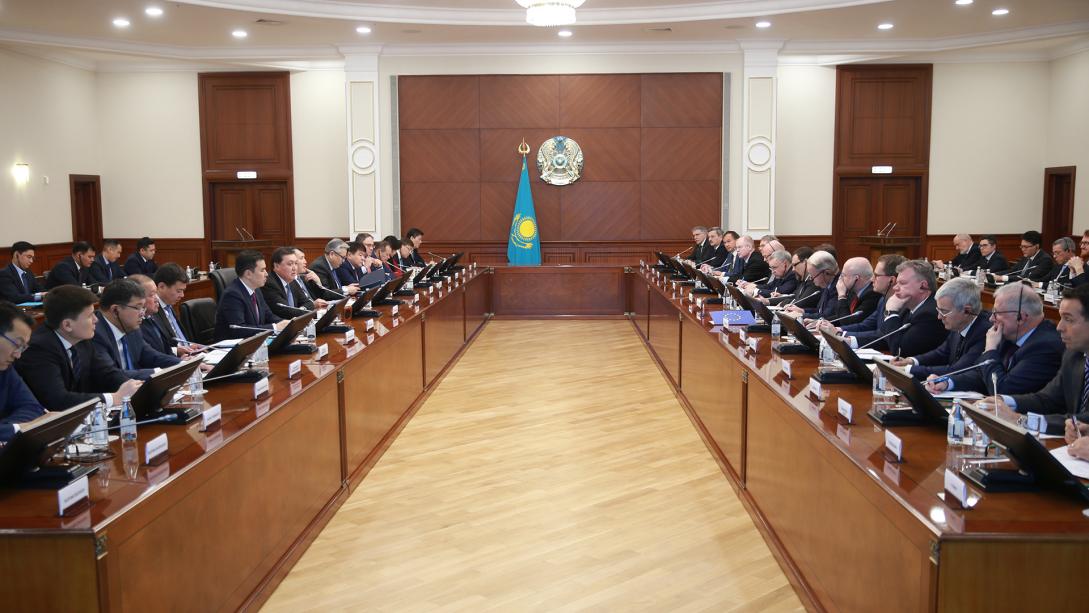Third EU-Kazakhstan High-Level Business Platform focusses on business climate and regulatory issues

Ambassador Carlsson welcomed the ratification of the EU-Kazakhstan Enhanced Partnership and Cooperation agreement by all EU Member States. For many years, the EU has been Kazakhstan's trade and investment partner number one. Our partnership has a huge potential to grow, and we should use new opportunities. We stand ready to continue supporting wide reforms undertaken by the Government that aim at improving the business climate, and reducing administrative barriers and business costs.
Participants discussed business climate and regulatory issues, including procurement and local content requirements, as well as recent and planned legislation. Previous meetings of the High-Level Platform took place in July and October.
EU is Kazakhstan's first trading partner and represents more than half of foreign direct investment in Kazakhstan. With the EU-Kazakhstan Enhanced Partnership and Cooperation Agreement (EPCA), the EU and Kazakhstan have developed a framework for further strengthening trade and economic relations. The EU supports Kazakhstan's ambitious reform and modernisation processes, including the improvement of the business climate.
The Platform of dialogue at high level complements the technical dialogue between the EU and Kazakhstan within EPCA, in particular the Cooperation Committee in Trade Configuration.
Background Information
The EU is Kazakhstan’s first trade partner representing over one third of its external trade and over half of total foreign direct investment in Kazakhstan. With over 75% of oil exports going to the EU (representing approx. 6% of total EU imports), Kazakhstan is already the third largest non-member of the Organisation of the Petroleum Exporting Countries supplier for the EU. From the EU, Kazakhstan imports machinery, transport equipment and pharmaceuticals, alongside chemical products, plastics, medical devices and furniture. The EU-Kazakhstan Enhanced Partnership and Cooperation Agreement, signed in Nur-Sultan on 21 December 2015 and provisionally application since 1 May 2016, aims at creating a better regulatory environment for businesses in areas such as trade in services, establishment and operation of companies, capital movements, raw materials and energy, intellectual property rights. It is a tool of regulatory convergence between Kazakhstan and the EU, with some “WTO plus” provisions, notably on public procurement.




